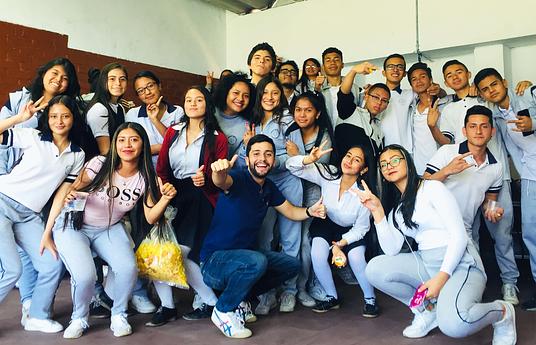The 412 Youth Zone was established in response to a request for proposals from Allegheny County Department of Human Services to address the need for comprehensive supports for young adults who are aging out of the foster care system or experiencing homelessness.
While the transition from adolescence to adulthood is an exciting period of growth and change, it always involves challenges. Disconnected youth face many additional obstacles to becoming healthy and productive adults. Experiences while in foster care, including frequent changes in placement, can compound the trauma of the neglect or abuse that led to them being removed from their homes and placed in the foster care system. Data from the Annie E. Casey Foundation shows that young adults who experienced foster care have worse outcomes than their peers in the general population across a variety of spectrums – from education to employment to housing to early parenthood. According to their 2018 report, only 75 percent of foster youth in Pennsylvania achieved a high school diploma or GED by age 21 compared to 92 percent of the state’s general population.
Youth experiencing homelessness are similarly vulnerable. Homeless youth are 87 percent more likely to drop out of high school, and the lack of a high school diploma or GED leads to a 378 percent higher risk of youth homelessness. Without a safe place to stay, youth are at high risk of labor or sex trafficking. Youth homelessness also has impacts on infants and toddlers, as up to 20 percent of unaccompanied homeless youth are pregnant, and unmarried parenting youth are 200 percent more likely to become homeless than their housed peers.
Disconnected youth need additional support toward achieving their educational and career goals as well as establishing or maintaining safe, stable housing as they approach adulthood. The supports offered to the general population in schools are not always adequate to surmount the challenges that they face. Disconnected youth do not have access to the vital assistance often provided by families and communities during this crucial developmental stage. Our youth not only have to navigate post-secondary and career options after school, frequently they also lack stable and consistent adult supports.
The 412 Youth Zone is a drop-in center located in downtown Pittsburgh where young adults ages 16-23 can meet their basic needs, increase stability in their lives, learn life skills, build positive relationships, foster creative expression, and grow into self-sufficient and independent adults. However, the Youth Zone is more than a physical space – it’s also a network of caring adults who create lasting connections with youth to help guide them through the many challenges of early adulthood. Upon entry to the program, each young person is assigned to a youth coach to be their primary support person toward achieving their own independent living goals. The youth coach can visit the youth where they live as well as assist them with transportation to the 412 Youth Zone drop-in center. Throughout a youth’s time at the Youth Zone, we assess their needs in order to collaboratively plan and connect the youth with resources to achieve their own goals. Often, the first goal that a youth works on with their coach is obtaining vital documents like a birth certificate, social security card, and state ID; these items are necessary for achieving independent living goals like finding a job or obtaining housing. Youth can participate in classes like Ballin’ on a Budget to learn financial literacy skills and Prep to become prepared to rent their own apartment. The healthy connections that youth can build at the Youth Zone before their eighteenth birthday continue to be available to them after graduating from high school or leaving the foster care system, a time when teachers and caseworkers become less available to youth as everyday supports.
We practice trauma informed care. We rely on six core values that drive our work with young people.

Healthy connection with caring adults leads to positive outcomes for disconnected youth. Over the past eight months, 28 of the 33 youth who aged out of the program were positively discharged with all their vital documents, state ID card, health insurance, stable housing, and reliable income on their 24th birthday. The remaining five youth had four of the five positive discharge criteria.



